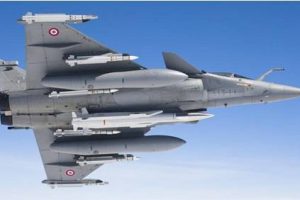With conflict rising across Gaza, Lebanon, and Syria, expert Haydar Oruç warns of a bleak outlook, especially for Turkey’s security if Israel’s reach extends into Syria. While global resistance to Israel’s actions remains limited, Oruç sees some hope in Israel’s strained resources and the potential for regional unity as a path to stability
As conflicts in Gaza, Lebanon, and Syria escalate, regional expert Haydar Oruç explains that Israel’s expanding military actions, with limited global resistance, have darkened the Middle East’s outlook. He highlights the international community’s double standard, contrasting its actions against Russia with its inaction toward Israel. Oruç warns that Israel’s reach could pose security risks to Turkey, especially if conflicts spread further into Syria.
While the situation is grim, Oruç identifies some hope: Israel’s resources are stretched thin, potentially limiting its ability to sustain prolonged conflict. Additionally, a regional coalition against Israel, or a de-escalation of its retaliatory cycle with Iran, could stabilize the region. For now, however, collective action from neighboring countries may be the best hope for containing violence and building conditions for lasting peace.
As the anniversary of the Gaza war approaches, escalating conflicts and rising tensions across the Middle East cast a somber shadow over hopes for the region’s future. Regional specialist Haydar Oruç shared a comprehensive analysis with Al Ain Turkish, drawing attention to the complex dynamics shaping the current situation and assessing both pessimistic scenarios and possible avenues for peace. Oruç’s perspective sheds light on Israel’s intensified operations, the pressures on neighboring countries, and the diminishing capacity of international mechanisms to halt further violence. Despite the bleak outlook, he identifies a few areas where constructive developments may still foster peace.
Over the past year, Israeli air and ground operations have surged, particularly in Gaza, Lebanon, and Syria. Oruç attributes Israel’s assertiveness in part to the passive response of the international community, which, he argues, has failed to impose effective checks. “Following devastating assaults in Gaza, Israel turned its attention to Lebanon, where we’re now seeing comparable patterns of destruction in certain areas. The world community’s ineffectiveness in restraining Israel, despite clear violations of international law, underscores the inadequacies of the current global system,” Oruç notes. He points to the striking contrast between the West’s response to Russia’s aggression in Ukraine and its inaction regarding Israel’s operations in Gaza as evidence of a double standard. While sanctions and global outcry have followed Russia’s actions, Israel’s military campaigns have continued with muted opposition, if any, from its allies.
Increasing Risks for Turkey
As Israel’s reach extends through Lebanon and potentially Syria, neighboring countries face heightened security concerns, with Turkey emerging as a notable case. Oruç warns, “Israel’s expanding operations pose an implicit threat to Turkey. Its activities in Syria, in particular, are concerning due to Syria’s limited capacity to mount a defense, which could exacerbate instability close to Turkey’s borders.” This power imbalance, alongside Syria’s vulnerability, has raised alarms for Turkish officials closely monitoring developments. Uncertainty lingers over how far Israel may choose to extend its operations, sparking concerns about the ramifications for Turkey’s security posture.
Turkey’s strategy in this complex landscape requires careful maneuvering. As the potential for broader escalation grows, Turkey’s response could involve both diplomatic and strategic adjustments. The degree of risk depends significantly on the scale and scope of Israel’s continued presence and operations in Syria. Should Israel expand further, Turkey may need to bolster its defensive measures and reconsider its alliances to safeguard its national security interests.
Fragile Hopes for Peace: Israel’s Capacity Limits
Despite the somber analysis, Oruç underscores several modest but crucial reasons for cautious optimism. He posits that Israel is already stretched thin across military, economic, and political dimensions. “Israel’s resources have their limits, and it has begun to show signs of strain,” he explains. This exhaustion could present an opening for regional players to exert pressure for de-escalation. If neighboring countries can unite around a collective strategy, Israel may be compelled to reconsider its aggressive stance. However, Oruç cautions that the absence of a united front would likely embolden Israel to persist with its military approach.
One other significant factor is the ongoing cycle of retaliation between Israel and Iran. The historic enmity between the two has fueled ongoing skirmishes and proxy conflicts, but some analysts suggest that breaking this cycle could alleviate regional tensions and, in turn, create conditions for peace talks. Although challenging, a resolution to this standoff might temper hostilities throughout the Middle East and lay the groundwork for a more stable future.
Conclusion: A Path Forward for Regional Stability
In closing, Haydar Oruç presents a nuanced perspective on the Middle East’s path forward. While the immediate outlook remains turbulent, Israel’s capacity limitations may eventually provide leverage for peace. Should neighboring countries coalesce in a strategic alliance, they might counterbalance Israel’s influence and foster conditions for meaningful negotiation. Although such cooperation appears difficult to achieve, it could be key to securing a more sustainable peace.






